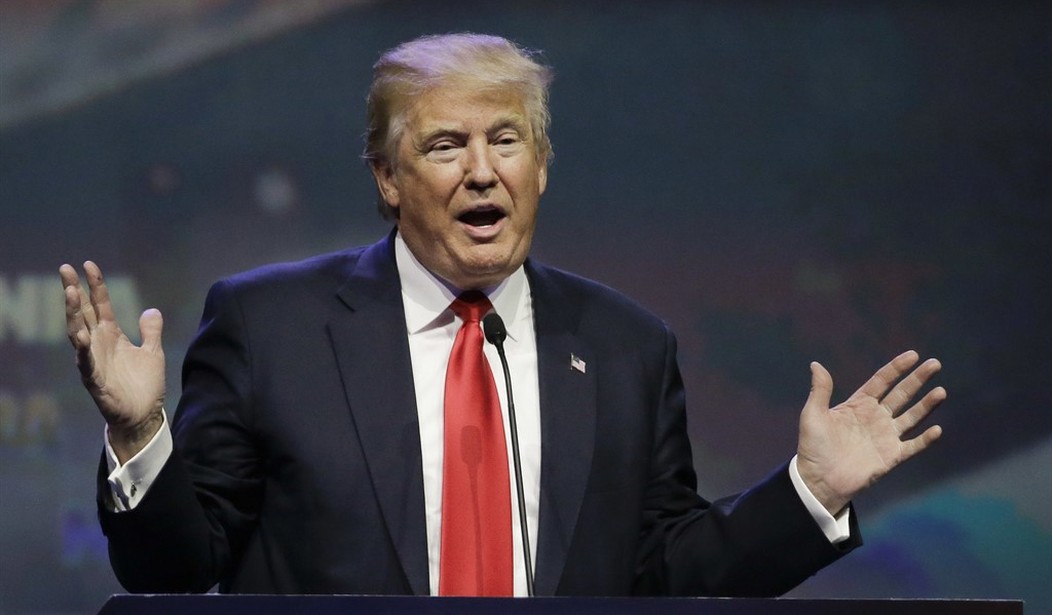At first glance it would seem that the Republican Party is determined to ignore the minority vote this election year. After all, its presumptive nominee is a man with unprecedented unfavorable ratings among Blacks, Latinos and other communities of color. Recent polls have indicated that as many is 91 percent of African Americans and 77 percent of Hispanic Americans currently view Donald Trump negatively.
It's hard to imagine a Republican victory in November, if an effective outreach strategy is not developed. To add insult to injury, many looked at post-election demographic analysis in the aftermath of the 2012 election and took note of about 7 to 8 million “missing” white voters. It seemed that—when compared to 2008 turnout and adjusting for population growth—a huge number of white voters stayed home.
As Sean Trende of Real Clear Politics explained, “The increased share of the minority vote as a percent of the total vote [in the 2012 presidential election] is not the result of a large increase in minorities in the numerator, it is a function of many fewer whites in the denominator.” Many assumed that these missing white voters were conservative evangelicals who stayed home because of Romney’s Mormonism. (Although to be fair, Trende directly refuted this assertion in his original article.) The instant “conventional wisdom” became that the Republican Party could win a national election in 2016 - without making significant inroads with minority voters. If you buy that logic, a candidate like Trump—with wide appeal to the white working class—would have a clear path to victory.
Unfortunately, even if Trump should win the White House, a whites-only campaign strategy would hurt the GOP in the long term. The demographic trends in America are clear.
Recommended
The white majority in America will be gone by 2043. By 2020, the majority of American children will be non-white.
Stanford University sociologist Corey Fields recently made a study of black Republicans and noted that most of the African Americans he talked to who identified as members of the Republican party were what he called “race-conscious.” He found that they viewed their race as a more important part of their identity than the “color-blind” image he perceived from the party on a national level. In addition to citing RNC rhetoric, Fields pointed to three black Republican leaders—former presidential candidate Ben Carson, Utah Congresswoman Mia Love and South Carolina Senator Tim Scott—as being “color-blind” in their both rhetoric and policy positions.
Dr. Carson aside, it is probably worth noting that Love represents Utah’s 4th Congressional District, which is just 1.4 percent black. Senator Scott, on the other hand, has been a consistently vocal advocate for criminal justice reform, school choice, and economic opportunity in struggling urban areas. Most recently, he proposed a measure that would incentivize both businesses and individuals to invest in low-income communities. I believe that Mr. Trump would do substantially better with blacks, if he followed Tim Scott’s example.
So Fields’ critique of these individuals that, “The message from the current crop of successful black Republicans is that conservative politics is at odds with black identity,” does not seem quite fair. What Blacks and Hispanics need are a few trustworthy messengers who can translate their world view into millennial and generation X language. Reflective blacks can also be wooed by strong economic policies and urban friendly “straight talk”. Unfortunately, many White Republicans on a national level struggle to speak about race, defaulting to language that implies minorities must lose some of their cultural distinctiveness to “fit” with the party. As Fields puts it, “The GOP presents a party where you have to choose: Be black or be a Republican.”
Now, more than ever, it is vital that conservatives play the long game. Minority newspapers and radio outreach will cost a fraction of the cost per thousand outreach dollars earmarked for this election cycle alone. Retail politics in urban America must be seen as the new guerrilla warfare for conservatives.
From now on, winning over minorities will never be a single-election cycle proposition. It must be about advancing ideas, offering alternative viewpoints, and combating the media-generated myth that conservatives are racists and that intrusive government policies are somehow beneficial to minorities. I believe that the time is now for the Republican Party to demonstrate that governing according to its principles will benefit every American, regardless of color. But in the long run, it will be up to Republicans themselves. To answer the question posed in my title, I do not believe that Donald Trump is a racist.
A bigger question is, “How badly does he want to win?” Next week, I will discuss practical steps all Republicans can take to make their party more appealing to a wider variety of voters.

























Join the conversation as a VIP Member